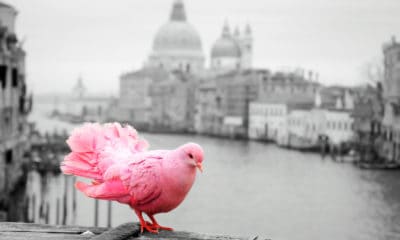50 Kintsugi Quotes For Putting Things Back Together
If you are picking up the pieces in your life, these kintsugi quotes are perfect for you.
Kintsugi is a clever and ingenious pottery technique.
People from all over the world admire the beauty, ingenuity, and craftsmanship that is embodied in each kintsugi piece.
Kintsugi is a technique used for broken pottery.
Tell us your favorite kintsugi quote in the comment section below.
What are the benefits of reading these kintsugi quotes?
If a vase, bowl, glass, or cup breaks, they glue the piece back together using melted gold.
The gold remains thick and visible, so it catches the eye and captivates the touch.
The philosophy behind this technique is that our scars or broken pieces make our life beautiful and should be worn with pride.
Kintsugi can teach us many things about life, including:
- accepting the fact that we are fragile
- reminding us that there is beauty in the imperfect
- proving that we can be strong and resilient enough to put our pieces back together
We should not feel shame in our struggles or imperfections as they make us who we are.
Kintsugi honors this idea of repairing pottery in a way that highlights the damaged areas so they can be admired.
Kintsugi pottery quotes
1. “To become beautiful it had to break.” — Aura Trevortini
2. “My heart full of gold veins, instead of cracks.” — Leah Raeder
3. “Your cracks can become the most beautiful part of you.” — Candice Kumai
4. “The struggles will become your story, And that’s the beauty of Kintsugi.” — Candice Kumai
5. “Your wounds and healing are a part of your history; a part of who you are.” — Bryant McGill
6. “Kintsugi: Embrace your imperfections and find happiness—the Japanese way.” — Tomas Navarro
7. “Broken pieces and their repair merely contribute to the story of an object, they don’t ruin it.” — Penny Reid
8. “The point of Kintsugi is to treat broken pieces and their repair as part of the history of an object.” — Penny Reid
9. “Kintsugi is a pottery technique. When something breaks, like a vase, they glue it back together with melted gold.” — Leah Raeder
10. “The bonded seams become an intrinsic part of the ceramic and add a personalized, one-of-a-kind beauty through its imperfections.” — Jo Ann V. Glim
Kintsugi bowl quotes
11. “Why be broken when you can be gold?” — Sarah Rees Brennan
12. “All beautiful things carry distinctions of imperfection.” — Bryant McGill
13. “Nothing lasts forever, nothing is complete, nothing is perfect.” – Shawzi Tsukanoto
14. “That is what you’re supposed to see. The beauty is in the brokenness.” — Justin Whitmel Earley
15. “I am looking forward to getting shattered only to add further elegance to myself.” — Aura Trevortini
Imperfection Kintsugi quotes
16. “I am looking forward to getting shattered only to add further elegance to myself.” — Aura Trevortini
17. “Kintsugi is the Japanese art of mending broken objects using gold of silver epoxy.” — Anonymous
18. “If you’re broken, hold until each piece of you heals one again. Life is but a Kintsukuroi.” — Samara Rhea Samuel
19. “Your wounds and imperfections are your beauty. Like the broken pottery mended with gold, we are all Kintsugi.” — Bryant McGill
20. “The Japanese art of kintsugi, or “golden joinery,” a method of repairing cracked pottery with a vein of lacquer mixed with gold or silver.” — Ingrid Fetell Lee
Kintsugi philosophy quotes
21. “They use gold, not invisible superglue because mistakes shouldn’t be considered ugly.” — Penny Reid
22. “For my poor love I cannot find repair without a balm more powerful than these.” — Roy Ernest Ballard
23. “Broken pieces and their repair merely contribute to the story of an object, they don’t ruin it.” — Penny Reid
24. “The secret to becoming unbreakable is realizing that you are already broken. We all are.” — Brant Menswar
25. “If you’re broken, hold until each piece of you heals one again. Life is but a Kintsukuroi.” — Samara Rhea Samuel
26. “I love the idea that an accident can be an occasion to make something more delightful, not less so.” — Ingrid Fetell Lee
37. “The Japanese art form of kintsugi repairs broken and flawed pottery with gold, silver or platinum.” — Sidhanta Patnaik
28. “The scars are the design. Your attention is drawn to the cracks and how they are mended.” — Justin Whitmel Earley
29. “It symbolizes how we must incorporate our wounds into who we are, rather than try to merely repair and forget them.” — David Wong
30. “It’s not what people are showing that’s worrying, it’s what they are concealing and the extent of the concealment.” — Et Imperatrix Noctem
Inspiring Kintsugi quotes
31. “Every beautiful thing is damaged. You are that beauty; we all are.” — Bryant McGill
32. “A break is something to remember, something of value, a way to make the piece more beautiful, rather than something to disguise.” — Penny Reid
33. “Did you know that pottery can be repaired with gold?” Kami asked. “Then it’s meant to be stronger than before, and more beautiful.” — Sarah Rees Brennan
34. “Your scar is important part of your life and is a part of you. It is a living history, never look scars as negative, instead take it as positive.” — Shawzi Tsukanoto
35. “Kintsugi is based on the belief that something broken is stronger and more beautiful because of its imperfections, the history attached to it, and its altered state.” — Jo Ann V. Glim
36. “Instead of making the cracks invisible, they make them beautiful…To celebrate the history of the object….What it’s been through. And I was just… Thinking of us like that.” — Leah Raeder
37. “I sit and pick up those pieces with their renewed essence and identities, with their flawed edges and imperfections, and join them together like Kintsugi, displaying the damages with pride.” — Rubina
Empowerment Kintsugi quotes
38. “Kintsugi is based on the belief that something broken is stronger and more beautiful because of its imperfections, the history attached to it, and its altered state.” — Jo Ann V. Glim
39. “And now every time that it shatters I build it back together better, stronger, with more unique random scars to redefine, to beautify, to create more success stories that I can claim to be mine, alone.” — Rubina
40. “In repairing the object you really ended up loving it more, because you now knew its eagerness to be reassembled, and in running a fingertip over its surface you alone could feel its many cracks – a bond stronger than mere possession.” — Nicholson Baker
41. “Kintsugi [is] not just a method of repair but also a philosophy. It’s the belief that the breaks, cracks, and repairs become a valuable and esteemed part of the history of an object, rather than something to be hidden. That, in fact, the piece is more beautiful for having been broken.” — Kathleen Tessaro
Beauty Kintsugi quotes
42. “In the language of delicate perception Kintsugi is the art of mending what is broken.” — Roy Ernest Ballard
43. “Instead of hiding what’s been damaged, the shards are mended with a special resin mixed with gold dust.” — Jo Ann V. Glim
44. “It doesn’t hide the cracks, but embraces it, seeing it as integral to the object’s history, and rebuilds something new.” — Sidhanta Patnaik
45. “God uses our brokenness to make us even more beautiful. It’s the place of brokenness where God comes in to restore and renew.” — James Prescott
46. “Kintsugi is a form of art embodying “Wabi Sabi” which is a word to appreciate Japanese aesthetic sensibilities. (Wabi Sabi which represents “beauty within simplicity and imperfection”)” — Shawzi Tsukanoto
Japanese broken pottery gold quotes
47. “Its philosophy and art state that breakage and mending are honest parts of a past which should not be hidden.” — Bryant McGill
48. “The Japanese believe that when something has suffered damage and has a history, it becomes more beautiful.” — Anonymous
49. “The bonded seams become an intrinsic part of the ceramic and add a personalized, one-of-a-kind beauty through its imperfections.” — Jo Ann V. Glim
50. “A plausible origin story dates this art to the fifteenth century, when Japanese shogun Ashikaga Yoshimasa broke his favorite tea bowl and sent it back to China to be repaired. It was returned with ugly metal staples, prompting the shogun to order his craftsmen to find a more aesthetic means of repair.” — Ingrid Fetell Lee
We all have times in our lives when we need to put things back together
Relationships, friendships, marriages, careers, education, finances, and mental and physical wellness can all be areas we feel the need to repair as an aspect of our experience.
Kintsugi reminds us to take pride in the parts of us we do not wish to see.
It is said that the concept of kintsugi originates back in the 15th century.
Ashikaga Yoshimasa was a shogun in Japan who broke his favorite tea bowl.
He sent it back to China to be repaired.
They ultimately returned the repaired bowl.
However, the Chinese crafters used metal staples to seal the cracks.
The shogun did not like the aesthetic of this look, so he ordered his court to find a more appealing form of repair.
His craftspeople used gold to fill the cracks of the shattered bowl, and thus kintsugi was born.
If you found this article inspirational, please share it on social media.











